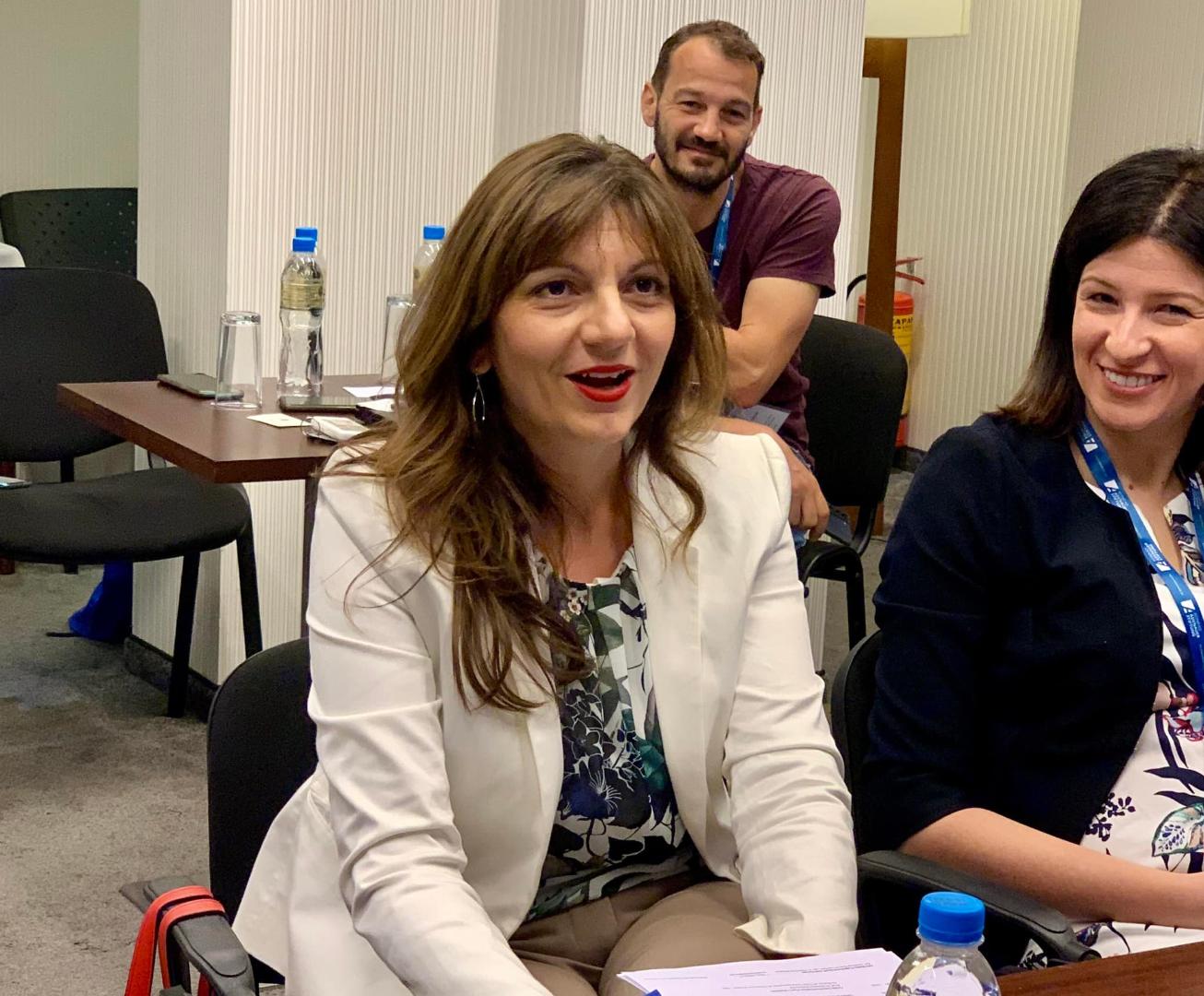Within three days, participants discussed the mission and role of spokespersons, strategic communication planning, digital campaigns, political framing as well as techniques, and the use of mobile journalism. The participants not only had the opportunity to share experiences and best practices with each other but also to take part in various challenging practical exercises designed by our international trainers from Deutsche Welle, the University of Milan, and the BBC.
The summer school was opened by Hendrik Sittig, Head of the KAS Media Programme South East Europe: „ As KAS Media Programme, we put great emphasis on strengthening media freedom and supporting journalists who understand and fulfill their role as democracy’s watchdogs. But we also want to support you - as communication experts, press spokespersons, government spokespersons, and advisers. Why? Because you play an important role in the democratic society as part of a party, government, or other democratic entity. As I understand it, your job is enormously important. You are the point of contact for journalists and the media. And quite naturally you expect them to conduct themselves professionally and fairly. At the same time, journalists must be able to count on you to show a serious and professional attitude, too. I know, that's not always easy and of course, everyone has their interests. But in my experience, a democracy can only function, when there is a certain level of mutual trust. As a journalist, I have always been very glad to have partners who know how professional public relations work.“ Mila Serafimova, Head of the Media and Communications Programme of the Sofia Security Forum (SSF), also had clear words on the role and mission of spokespersons and political communicators: "Professional press relations build trust, increase credibility and lead to successful political communication which makes complex content accessible and understandable".
Georg Streiter, the former deputy government spokesperson for German Chancellor Angela Merkel, addressed the first session of the KAS Summer School on the role and mission of every political spokesperson and then discussed with the participants the challenges political communicators face nowadays. Afterward, Francesco Bartonini, professor for crisis communication at the University of Milan, gave a lecture accompanied by numerous examples of current strategies of political crisis communication. On the second day, the training continued with exercises and theoretical input on digital political communication and political campaigning. Marian Bracht, Head of the Office of the CDU Federal Executive Director and campaigning expert of the CDU, not only presented strategies and current trends but also discussed with the participants the feasibility of political campaigns and digital communication models in the respective Southeast European countries. Andrey Vladov and Theodora Broyd from the BBC deepened the training with further input on the topic of political framing as well as an exciting discussion on the relationship between journalists and political communication experts. Finally, participants received hands-on knowledge from Deutsche Welle MoJo expert and foreign correspondent Florian Schmitz on the benefits of using MoJo (mobile journalism) within political communication.













